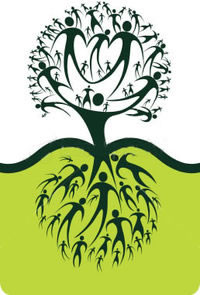Urban Poor Movement Leadership
 "Unless a grain of wheat falls into the ground and dies it remains alone but if it dies it bears much fruit" John 12: 24-26.
"Unless a grain of wheat falls into the ground and dies it remains alone but if it dies it bears much fruit" John 12: 24-26.
"You did not choose me but I chose you that you should go and bear much fruit and that your fruit should abide" John 15:16.
But it comes as surprise to many of us that after 20 years ministering we are now leading scores of thousands of people. Somehow we have stumbled into movement leadership because we have planted good seed and that good seed keeps multiplying.
This has to do with organic systems in contrast with mechanised production lines. Forests multiply without human energy because God has built that multiplication into the DNA of the trees.
Thus the heart of this course has to do with moving from a little and poor quality seed sowing to the breadth of planting for harvest and sowing of good seed that has a dynamic lifechanging power. This involves progressions from early leadership fruitfulness to full apostolic leadership .
There is an old Persian story of a wise King. In return for great service he offered one of his nobles a choice. To be given a room full of rice, or to be given a grain of rice on the first square of a chess board, 2 on the second, 4 on the third, 8 on the fourth, 16 on ... up to the 64th square. The noble chose the room of rice. Was he wise?
But the seed is not just ideas, it is life transferral and it is life transferral in the midst of death, painful, bloody, dirty, messy, abusive death. Movement leadership is no flashy Televsion show, it is a wandering in the midst of poverty. The deeper the death, the greater the harvest.
Thus (a) the power of multiplication inherent in organic growth and (b) the power of quality seed and (c), the depth of its fall into the ground all feed into our coming to a place of leadership of thousands. We then face the question, as God blesses, are we ready for this? In this course we will look at the following:
Moving from leadership to Apostolic leadership
Moving from effective roles among the poor to a breadth of roles
What are the progressions from being a leader and a movement leader?
You never change things by fighting the existing reality. To change things build a new model that makes the existing model obsolete. —Buckminster Fuller
